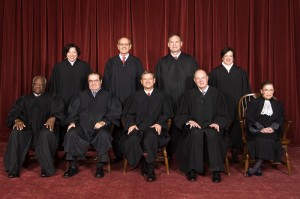As participants in American democracy, part of our job is to make democratic choices, like voting. We have a choice as to which candidate we feel may best represents us locally, on the state level and federally.

Come November 6th, we will once again head to our local precincts and cast ballots for President of the United States of America. Our choices this year include the reigning champion, Barack Obama. His challenger is a worthy adversary with a strong political history. His name is Mitt Romney.
For many, the choice is simple: Which candidate will best represent your interests from 1600 Pennsylvania Avenue? Is President Obama the right person to restore our economic freedoms or is it Mr. Romney? Will Romney repeal the Affordable Care Act? Will Obama alter the act so that it is more inclusive?
So many choices and so many issues. So which candidate is the best one to represent your interests? I say that out of all the issues listed above, the most important one is not listed.
The United States Supreme Court.
Just last week, we received the Supreme Court ruled that the Affordable Care Act is constitutional. This was a landmark decision by the court and it sent political and social reverberations across the country.
For those who consider themselves ardent supporters of President Obama, this was simply victory.
On the other hand, we had the historical judgment of Citizens United. In essence, the court ruled that corporations shouldn’t have restrictions on the amount of money they can spend politically.
At the core of each decision was one person: Chief Justice John Roberts. Roberts leaned on precedent for his supportive opinion of the Citizens United case. He stated that the court must sometimes rule against precedent for the greater good.
For his opinion on the Affordable Care Act, he stated that the individual mandate penalty was a tax and ruled it legal and constitutional under the taxing clause.
Both are key opinions that will go a long way in shaping our political discourse and reality. But what’s more important here is not the decisions, but who made them.
Chief Justice John Roberts was picked by former President George W. Bush to replace Chief Justice William Rehnquist. Since then, his court has been shaped by the two aforementioned cases.
No matter which side of the political aisle you walk, you are more than likely outraged by one of the two decisions.
Where your vote steers the court is on November 6th, as when a justice decides to retire the sitting president gets to choose that justice’s replacement.
If anyone is angered over the Citizens United decision, then here is your chance to aid in shaping the court. Over the next five to seven years, there may be an opportunity to replace two justices. Depending on the political party sitting behind the desk in the oval office will determine how the court is run for the next few decades.
Remember on Election Day in November, not only are we picking a president, we are also choosing how the Supreme Court looks politically and judicially.
Jason Henry is a candidate for the Florida House, representing District 46.



Great piece Jason. I think that the Supreme Court decisions touch everyone, even though many of us ignore the cases that don’t make the news headline.
On a note more close to home, the State of Florida leads in the number of juveniles sentenced to life without parole for lesser crimes than murder. The judges hands are tied as they dish out harsh mandatory sentences. As an elected official, would you fight to give more discretionary authority to judges in sentencing?